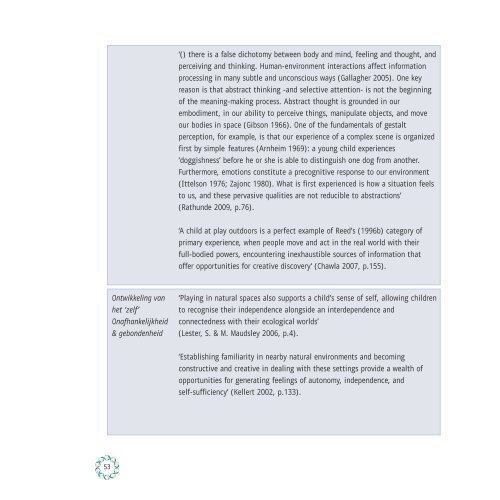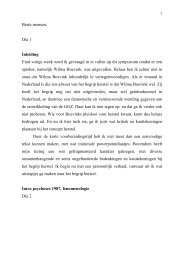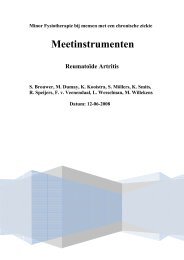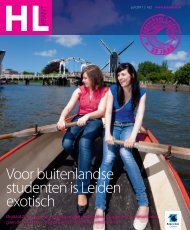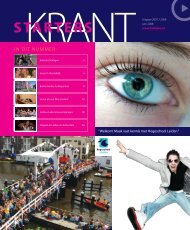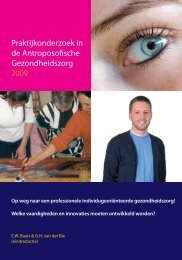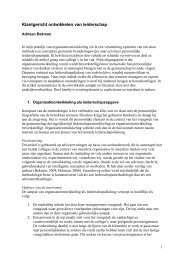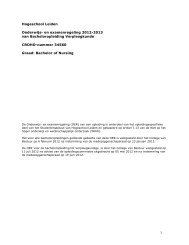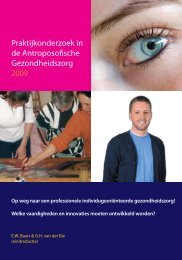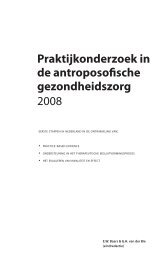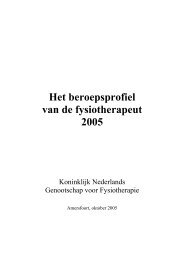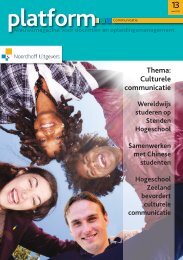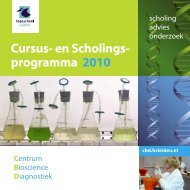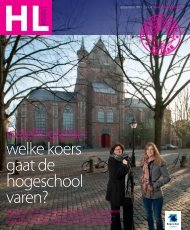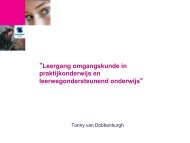Van deadline naar lifeline - Hogeschool Leiden
Van deadline naar lifeline - Hogeschool Leiden
Van deadline naar lifeline - Hogeschool Leiden
Create successful ePaper yourself
Turn your PDF publications into a flip-book with our unique Google optimized e-Paper software.
53<br />
‘() there is a false dichotomy between body and mind, feeling and thought, and<br />
perceiving and thinking. Human-environment interactions affect information<br />
processing in many subtle and unconscious ways (Gallagher 2005). One key<br />
reason is that abstract thinking -and selective attention- is not the beginning<br />
of the meaning-making process. Abstract thought is grounded in our<br />
embodiment, in our ability to perceive things, manipulate objects, and move<br />
our bodies in space (Gibson 1966). One of the fundamentals of gestalt<br />
perception, for example, is that our experience of a complex scene is organized<br />
first by simple features (Arnheim 1969): a young child experiences<br />
‘doggishness’ before he or she is able to distinguish one dog from another.<br />
Furthermore, emotions constitute a precognitive response to our environment<br />
(Ittelson 1976; Zajonc 1980). What is first experienced is how a situation feels<br />
to us, and these pervasive qualities are not reducible to abstractions’<br />
(Rathunde 2009, p.76).<br />
‘A child at play outdoors is a perfect example of Reed’s (1996b) category of<br />
primary experience, when people move and act in the real world with their<br />
full-bodied powers, encountering inexhaustible sources of information that<br />
offer opportunities for creative discovery‘ (Chawla 2007, p.155).<br />
Ontwikkeling van ‘Playing in natural spaces also supports a child’s sense of self, allowing children<br />
het ‘zelf’ to recognise their independence alongside an interdependence and<br />
Onafhankelijkheid connectedness with their ecological worlds’<br />
& gebondenheid (Lester, S. & M. Maudsley 2006, p.4).<br />
‘Establishing familiarity in nearby natural environments and becoming<br />
constructive and creative in dealing with these settings provide a wealth of<br />
opportunities for generating feelings of autonomy, independence, and<br />
self-sufficiency’ (Kellert 2002, p.133).


